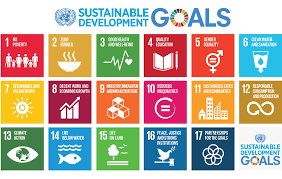
The Sustainable Development Goals Report 2021, launched on Tuesday at UN Headquarters in New York, shows the toll that the COVID-19 pandemic has taken on the 2030 Agenda, as the landmark annual High-Level Political Forum (HLPF) officially got underway. Read our curtain-raiser story here. In addition to the almost four million deaths due to the coronavirus, between 119-124 million people were pushed back into poverty and chronic hunger, and the equivalent of 255 million full-time jobs were lost, the report indicates. “The pandemic has halted, or reversed, years, or even decades of development progress. Global extreme poverty rose for the first time since 1998”, said UN Under-Secretary-General Liu Zhenmin, during the launch. Moreover, disruptions to essential health services have threatened years of progress in improving maternal and child health, increasing immunization coverage, and reducing communicable and non-communicable diseases. Around 90% of countries are still reporting one or more significant disruptions to essential health services. The report also indicates that the pandemic has exposed and intensified inequalities within and between countries. As of 17 June, around 68 vaccine shots were administered for every 100 people in Europe and Northern America - compared with fewer than two, in sub-Saharan Africa. Millions of children risk never returning to school; while rising numbers have been forced into child marriage and child labour. With trillions of tourist dollars lost during the pandemic shutdowns, the collapse of international tourism has disproportionally impacted struggling Small Island Developing States. “The poorest and most vulnerable continue to be at greater risk of becoming infected by the virus and have borne the brunt of the economic fallout”, highlighted Mr. Liu. While an economic recovery is under way, led by China and the United States, in many other countries, economic growth is not expected to return to pre-pandemic levels before 2022 or 2023. The report also confirms what UN agencies such as the World Meteorological Organization (WMO) have been sounding the alarm over: the economic slowdown in 2020 did little to slow the climate crisis, which continues largely unabated. Concentrations of major greenhouse gases continued to increase, while the global average temperature was about 1.2°C above pre-industrial levels, dangerously close to the 1.5°C threshold, established in the Paris Agreement. The world fell short as well on 2020 targets to halt biodiversity loss and a reversal of the 10 million hectares of forest which was lost each year, between 2015-2020. The COVID-19 pandemic has also adversely affected progress towards gender equality. Violence against women and girls has intensified, child marriage is expected to increase, and women have suffered a disproportionate share of job losses and increased care responsibilities at home. Meanwhile, global flows of foreign direct investment fell by 40% in 2020 compared to 2019. The document shows the pandemic has brought immense financial challenges, especially for developing countries – with a significant rise in debt distress. “This report paints a worrying picture regarding the state of the SDGs. Yet, it also highlights stories of resilience, adaptability and innovation during the crisis, which indicate a brighter future is possible”, underscored Mr. Liu. He added that there are signs that countries are taking steps under their recovery plans, that could improve SDG action, and that the next 18 months are critical. According to the report, to get the SDGs back on track, governments, cities, businesses and industries have to use the recovery to adopt low-carbon, resilient and inclusive development pathways that will reduce carbon emissions, conserve natural resources, create better jobs, advance gender equality and tackle growing inequities “We are at a critical juncture in human history. The decisions and actions we take today will have momentous consequences for future generations. Lessons learned from the pandemic will help us rise to current and future challenges”, Mr. Liu urged. The Under-Secretary General explained that the upcoming months will determine whether the COVID-19 crisis serves as a ‘much-needed wake-up call’. “The global community, first and foremost, needs to ensure equitable access to COVID-19 vaccines and treatments. This is a critical step that can truly spur a decade of action”. The 2030 Agenda, adopted by all United Nations Member States in 2015, provides a shared blueprint for peace and prosperity for people and the planet, now and into the future. At its heart are the 17 Global Goals, to improve health and education, reduce inequality, and spur economic growth – all while tackling climate change and working to preserve our oceans and forests. The launch of the 2021 SDG report coincides with the start of the HLPF on Tuesday. The event is the core UN platform for follow-up and review of the 2030 Agenda. The meeting will continue through July 15th, under the auspices of the Economic and Social Council (ECOSOC). This includes the three-day ministerial meeting that started today. The ministers will discuss ways to ensure a sustainable and resilient recovery from COVID-19 that puts the world on track to realize the 2030 Agenda. 43 countries will also present their voluntary national reviews of their implementation of the 2030 Agenda. The meeting will put the spotlight on nine Global Goals this year: ending poverty, zero hunger, improving health, decent work, reducing inequalities, responsible consumption and production; climate action, sustaining peace, and building partnerships.
Gains rolled back
Acute inequalities
Climate and biodiversity challenges
Brighter future still possible
High Level Political Forum












Add new comment